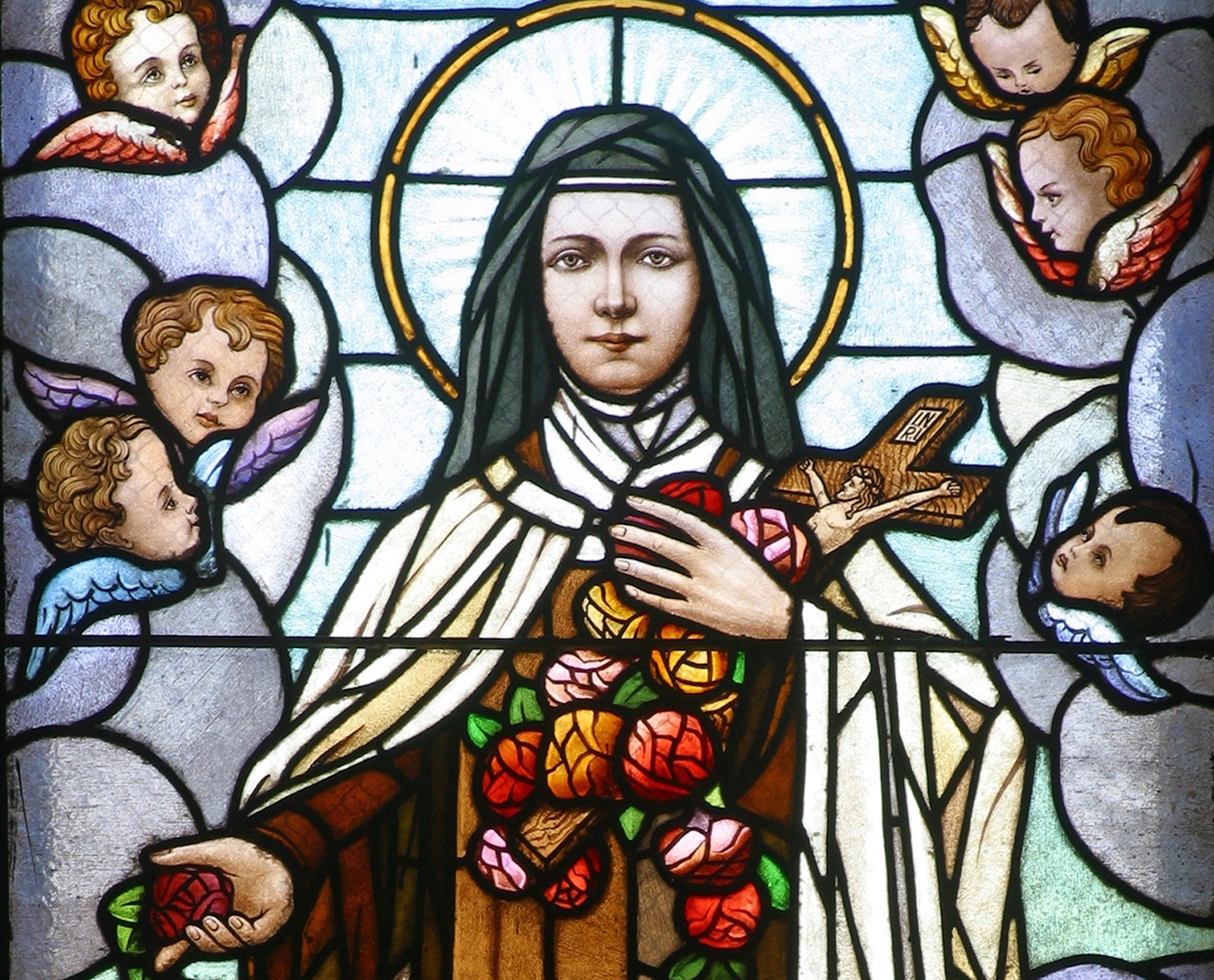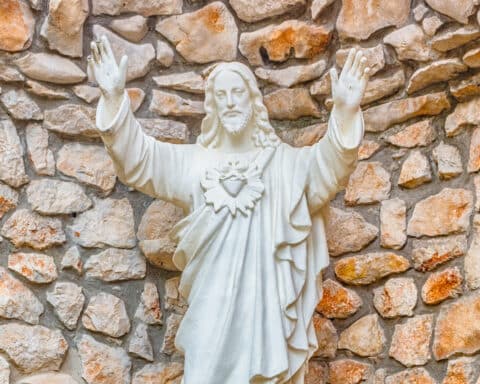Some Sundays the Lectionary for Mass provides optional readings for the memorials of the saints. This is the case this Sunday, which coincides with the memorial of St. Thérèse of Lisieux, also known as the “Little Flower.” I thought I might take up these optional readings for this week. It is interesting to see how Scripture is enfleshed in the lives of the saints, something we are all called to notice each Sunday.
St. Thérèse was born on Jan. 2, 1873, the ninth child of Louis and Zélie Martin. We often remark on the extraordinary holiness of her whole family. Her parents were canonized (together, as a couple) in 2015, and the cause for canonization for her older sister, Leonie, is currently open. Thérèse entered the secluded and austere life of the Carmel at Lisieux, France, when she was just 15. During her years in the Carmel at Lisieux, Thérèse developed her “Little Way” of love, learned first from her parents at home. She filled each day with small acts of love: assisting the elderly sisters, doing laundry, praying, smiling. She died of tuberculosis when she was only 24.
But that is not the end of St. Thérèse’s story. To this day, Thérèse continues to practice her Little Way of love, as she promised she would before her death. There are frequent reports of miracles attributed to St. Thérèse, often accompanied by roses or by the scent of roses. As the first reading for the optional memorial tells us, “The Lord’s power shall be known to his servants” (Is 66:14).
| October 1 – 26th Sunday in Ordinary Time |
|---|
|
Ez 18:25-28 Ps 25:4-5, 6-7, 8-9 Phil 2:1-11 Mt 21:28-32 |
St. Thérèse and her roses make the power of God’s love known “to his servants.” Thérèse once summarized her Little Way as the vocation to “be love.” She reveals how true it is that love is a power stronger than death in her continued attention to our prayers, both big and small. She has healed soldiers on the battlefield and comforted children in moments of sorrow, unveiling in all moments the communion of love that binds us together — the living and dead, the pilgrims on the way and the saints in heaven.
We might think of this as a “big” revelation, but it is the correlative to Thérèse’s Little Way. This way, as she described it, is the way of spiritual childhood. We practice it by looking to the Child Jesus, and, through him, to our merciful Father, “who art in Heaven.” Thus, Thérèse’s Little Way invites us to trust in God with absolute confidence, as a little child trusts his or her own father. Indeed, God is our Father and loves us so much as to provide a “way” little enough for us, his “little ones,” to follow.
Here the readings for the memorial return us to the Gospel of Matthew. The Gospel acclamation reads: “Blessed are you, Father, Lord of heaven and earth; you have revealed to little ones the mysteries of the Kingdom” (Mt 11:25). Oftentimes, our Christian tradition takes up this language of “little ones” and of “becoming like children” (cf. Mt 18:3-4) as an image of humility. Thérèse refers to this as well, but by focusing more literally on the Incarnation itself, on the fact that God became a small child.
Thérèse’s mother, Zélie, died when Thérèse was only 4 years old. And so her own childhood was encompassed by fatherly love. Louis carried Thérèse “in his arms” (cf. Is 66:1-10) and saw to the “little things” of her daily life. Through her father, Thérèse said, she had tangible experiences of God as our Father.
And thus, Thérèse enfleshes the love of God revealed in Scripture. In Thérèse, we not only encounter the “littleness” of those who “enter the kingdom of heaven” (Mt 18:4), but we also encounter the great tenderness of the Father being revealed from heaven for love of his “little ones.”





